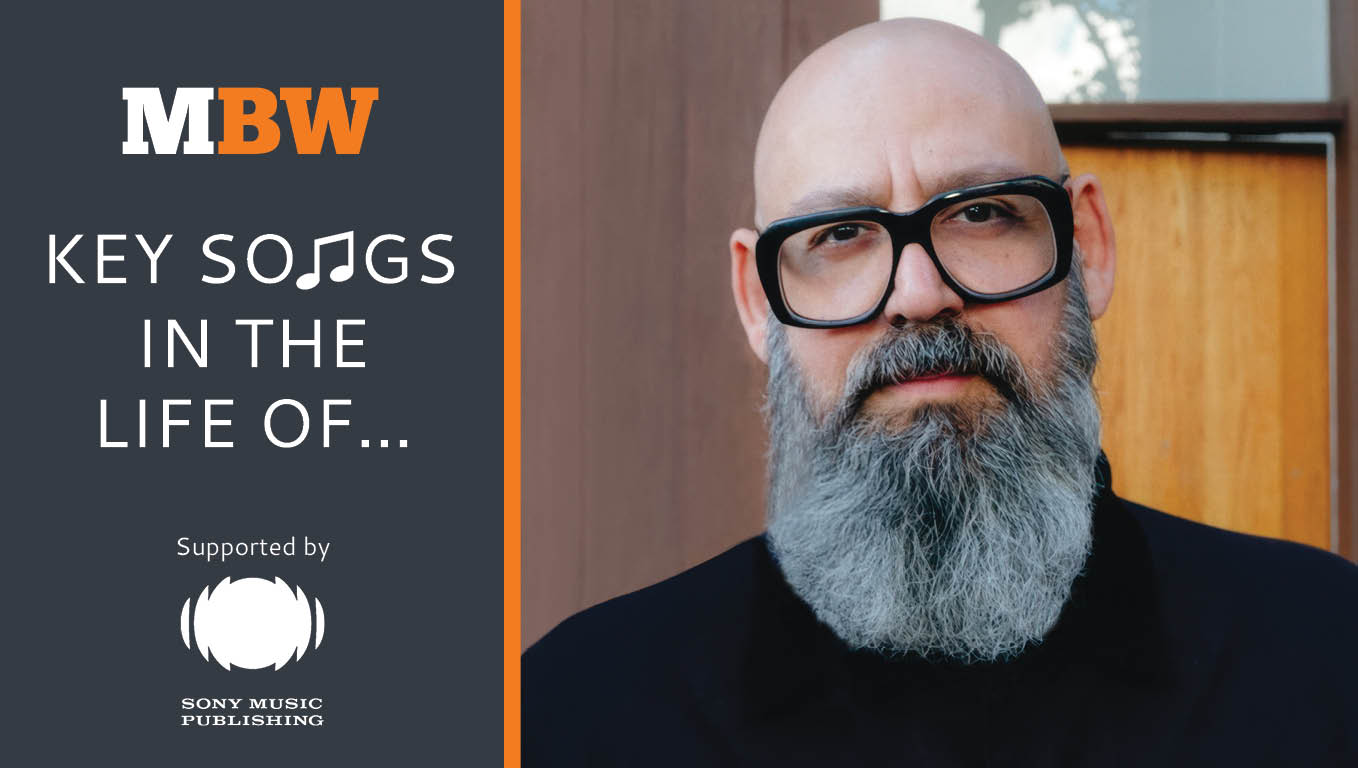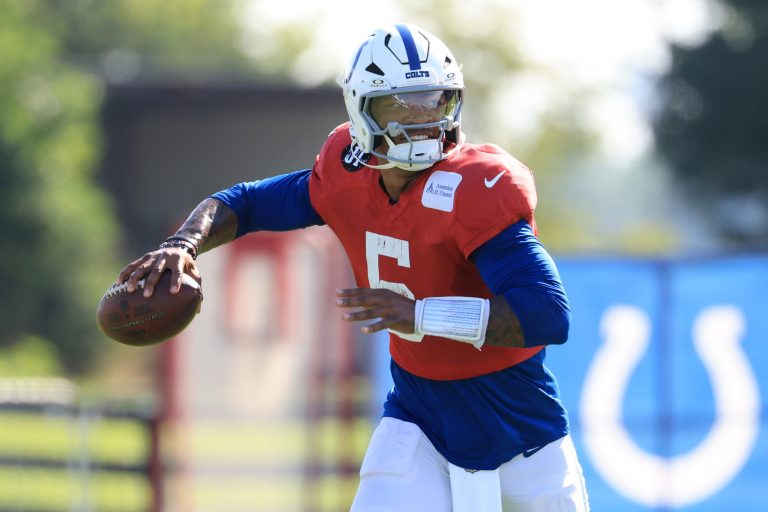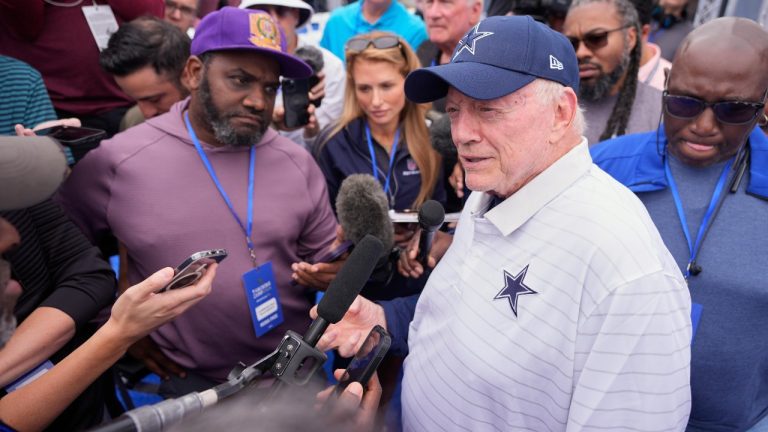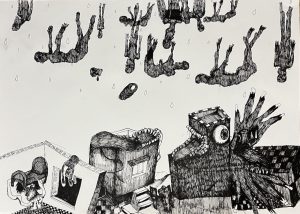MBW’s Key Songs In The Life Of… is a series in which we ask influential music industry figures about the tracks that have — so far — defined their journey and their existence. In the hot seat this time is Josh Abraham, co-CEO of Pulse Music Group. The Key Songs… series is supported by Sony Music Publishing.
Josh Abraham has spent his career championing the outliers.
“I’m drawn to those who lead the way by not following trends,” says PULSE Music Group‘s co-CEO, before we dig into his Key Songs choices and the stories behind them.
“There was also always a danger in what I listened to,” he adds. “That’s what led me to rock and hip-hop becoming such big parts of my life.”
Abraham’s gravitation to music’s non-conformists has served him well throughout his career, both as a highly sought-after producer and co-head of one of the world’s hottest independent publishers and record companies.
PULSE, co-founded by Abraham with hit songwriter Scott Cutler in 2008, has seen significant success with writers behind hits for artists like Miley Cyrus, Harry Styles, Katy Perry, and others. The company has also been enjoying a run of recent success with Tommy Richman’s viral smash Million Dollar Baby (via Pulse Records, a JV with Concord).
Abraham’s own journey in music began and continues in Los Angeles, where he grew up with a guitar in his hands and an ear that naturally deconstructed music into its component parts. As a teenager, he recalls listening to music in a different way from his friends: “They’d talk about how they liked a song, but I would break down music, following the kick pattern, understanding what the drums were doing, separating instruments,” he recalls.
This innate ability to dissect sound eventually led him into the studio. With his foundations in guitar-led blues and rock combined with a passion for early hip-hop, Abraham produced landmark rock and nu-metal albums from Orgy to Limp Bizkit, Staind, Linkin Park, and more.
His work on those albums eventually led to producing Slayer’s Christ Illusion in 2006 with executive producer Rick Rubin, a full-circle moment for Abraham, who had long admired Rubin’s pioneering work with Def Jam and hip-hop in the ’80s. “It was cool to come back and make a Slayer album where he was executive producer and I was producer,” he says.
Abraham would start working with Rubin again in 2014 via PULSE Music’s JV with American Songs, which led to signings with Turnstile, Freddie Gibbs, Kaytranada, and more.
“These songs are all gifts, showing how each artist influenced the next, creating this beautiful continuum of music that I’ve been lucky enough to be a part of.”
Josh Abraham
The songs that have shaped Abraham’s musical journey are as eclectic as his production credits and publishing roster, with his choices spanning blues, funk, rock, hip-hop, and even yacht rock.
As Abraham explains below, each represents a period in his life when music introduced him to different scenes, new creative possibilities, or simply comforted him.
“When I look back at all these songs now, I realize they’re like photographs,” he says. “If I wasn’t a music producer, I would have been a photographer. When I recorded a song as a producer, it was no different than taking a picture, capturing a great take, and then moving on.
“These songs are all gifts, showing how each artist influenced the next, creating this beautiful continuum of music that I’ve been lucky enough to be a part of.”
Here, in his own words, are the key songs that have defined Josh Abraham’s life and career so far…

Albert King, I’ll Play The Blues For You (1972)
I went into a deep dive with blues. For every genre, I went through a rabbit hole of discovery.
Albert King was a Memphis player. The way he played was unique – he was left-handed, so he’d take a right-handed guitar, flip it upside down, and didn’t restring it. So he could pick up any guitar, and his tone was just rowdy.
Other players like B.B. King were clean and proper, but Albert influenced players like Stevie Ray Vaughan to some degree. Blues is part of the lineage to hip-hop and everything else in rock.
I probably discovered Albert King when I was in high school, around when I learned to play guitar in middle school. He played more noisy than the rest, and it was threatening. There’s a blues pentatonic scale, and if you play guitar, you know it – Albert played it harder. He wasn’t a fast player, but his notes, his bends were different.
The first time I heard I’ll Play The Blues For You was on a compilation in the ’80s. I think I might have been listening to a B.B. King record or a Muddy Waters record. I had a stack of blues records, but this was the one that caught me. In one Stevie Ray Vaughan interview, they talked about Albert King, and that’s what I was focused on at the time.
There’s a video on YouTube of Stevie Ray Vaughan and Albert King together. It’s them jamming for about 40 minutes, trading licks and solos. It’s one of the most fascinating things to watch.

Prince, Controversy (1981)
Picking a Prince song is really hard, but I was really influenced by the album Controversy and the song Controversy.
Prince came out with this leather, see-through outfit – he was so opposite of what was going on at the time. He represented danger in his music, but he was just so funky and prolific and such a great songwriter, from his lyrics to the music. He was a 100% songwriter – he didn’t have people writing songs for him.
Sonically, the song Controversy used to be a good reference point for how kick drums should sound. There’s not a lot of room mics – it was like post-disco, so it had some of that warmth to it. The first few Prince albums were all done this way. Sonically, they were almost like disco mixes, but they weren’t. The drums are all smaller, the bass always direct, the guitars sounded direct.
I didn’t always discover songs when they came out. I probably discovered Prince during the Purple Rain era, and that led me back to Controversy. So that was probably the mid-80s, when I was in middle school in Los Angeles.
In middle school, between 1981 and 1984, I was heavily influenced by both punk rock up to 1981 and post-punk, and then right into the pioneering hip-hop. I remember 1984 there was a tour with Run-DMC and the Beastie Boys. This was the first time I connected a producer to music because people were talking about Rick Rubin bringing the Beastie Boys and Run-DMC together.
Growing up in LA, the scene around that time was great – dancing, clubs, Afrika Bambaataa came out here, there was a club called Water the Bush . It was an emerging scene of hip-hop, and that’s where I was rooted. That was a big part of my life. But I also played guitar, which led me down other paths like Prince.

Pink Floyd, Time (1973)
I look at each Pink Floyd album as one song. Dark Side of the Moon is one song to me. But if we have to isolate a track, it’s Time.
I know it’s blasphemous to say this, but I was a Floyd guy, not a Beatles guy. I’ll never forget listening to Dark Side of the Moon for the first time. It’s the reason why, when I produced music, it was all about production. It wasn’t just about a song. I couldn’t believe what I was listening to, and I became a massive Pink Floyd fan, which led me to David Gilmour and his guitar solos.
I still loved hip-hop; that was my social life, driving around with friends or going to clubs. But I had this secret life of playing guitar. I was passionate about music and learned playing by figuring out solos from Gilmour.
It’s actually funny, I produced a record with Slash, and when we recorded his solos, he looked at me and asked, “How do you hear that?” I told him I was a major Gilmour fan, and it turned out he was Slash’s favorite guitar player as well. We noticed that the way Gilmour bends notes, he doesn’t go all the way – he just slowly bends into this half-bend. It’s something Slash does too.
I wish YouTube existed back then as a way to learn some of the solos properly. You’d wait for Guitar World to come out, where they’d break down three songs, and a small social group of guitar-playing friends would learn those solos. Of course, everyone played them differently, and we’d compare techniques.
Playing guitar then was either you were Eddie Van Halen, some genius, or you made your way to a certain level, which is where I plateaued. That’s why I thought, “I’ll just produce,” and I’m glad I took that path. But I understand the guitar, which has served me well.

The Notorious B.I.G., Hypnotize (1997)
I spent a lot of time in the ‘90s in New York, and that was a big part of my life – just being in the scene, going to clubs. The ‘90s era in New York hip-hop was probably one of the best, at least from my experience.
When tracks like Hypnotize or Juicy came on, the feeling you’d get in the room or club was unlike anything else. Whether you were drinking or not, those songs just set off the mood in the club.
I first visited New York to see my sister who was in school there in the early ‘90s. Then I was doing demos with a band called Limp Bizkit, and I remember we were in Florida at Fred Durst’s house when I called the label and said we needed studio time. So I rented a bus and we drove into New York City. It was my first real time working there, and we stayed for a while.
New York in the ‘90s was the first time I saw a DJ being the focus of the club. It was the first time I saw a VIP section. All of a sudden there was this roped-off section behind the DJ booth. And it was the first time I saw people ordering bottles in clubs. I don’t think it was called “bottle service” yet, but you know, VIP sections with bottles.
I went to The Tunnel and saw Gang Starr perform there, which was a standout show. I also met Mark Ronson around that time.
Hip-hop was a big part of the backbone of music for me. The rhythm of music for me always is R&B and hip-hop. The way I approach music always starts with the beat. That influenced a lot of the records I worked on later.

Depeche Mode, Enjoy The Silence (1990) / The Cure, Just Like Heaven (1987)
When I think about the ‘80s, I think of Kraftwerk, The Smiths, Roxy Music, Bryan Ferry. My challenge for picking songs that represent the ‘80s was quite difficult.
[Depeche Mode’s] Violator was an insanely influential album to me, so Enjoy The Silence is one key song from that era. The other is The Cure’s Just Like Heaven. The overall flanged-bass color and everything The Cure did with Robert Smith’s vocals was just quintessentially 80s.
You also had that whole New Romantic scene [like] The Smiths. I love that scene, and I went on a deep dive with all those records.
That influence shows up in my production work too. I did a record for Thirty Seconds to Mars, A Beautiful Lie, and there wouldn’t be any of that electronic stuff in there had I not been influenced by Depeche Mode.
Same thing with Nine Inch Nails, all that industrial music came out of the genesis of ‘80s keyboards.

Korn, Ball Tongue (1994)
With Korn – sometimes it’s their self-titled debut album from 1994 that I consider as a whole, but if we have to isolate a song, it’s Ball Tongue.
I was doing events in LA around 1994 / 1995, working on the Limp Bizkit album too. That Korn album and that song had 808s in it. The way it was recorded, it must have been mixed on big speakers, not little speakers, because if you hear it loud, it makes sense. On small speakers, you can’t really get it.
It shattered me. Probably what happened to The Beatles when they heard the Beach Boys, it did that to me. I thought we were doing something novel with the band Orgy because we tuned down to B. Some of the other bands, like Korn, had a lower, growly density.
Somehow, with Korn, they managed to have a bass guitar, a low string on a regular guitar playing chords, and there’s not a lot of space sonically to fill in with an 808 – but they did it. They did it great. It was incredible work. That album influenced me to produce more.
The Korn sound was very hip-hop influenced. It’s very rhythmic, very beat-driven, very 808-heavy, but with guitars creating a different sound altogether.
I think what connects hip-hop and rock is the rhythm. If you take the hip-hop out of rock, you have more straightforward heavy metal – just straight riffs, no funk, no head-bobbing. Guitar riffs can only go so far, but if you change the beat, the rhythm can follow that beat. The genres complement each other.
When you saw Walk This Way with Run-DMC and Aerosmith, that fused both scenes of music into one. It really brought attention to the fact that it’s just one thing.
I remember being at a club when DJ AM was still alive – he was a friend – I’ll never forget, he went from a Biggie song right into AC/DC’s Back in Black, and it just worked. It was a straight-up transition, and the whole club kept bobbing their heads. The evolution of this genre blending was organic.

Hall and Oates, Sara Smile (1977)
This is a yacht rock era song.
It was my “calming song” when I was younger. If I felt anxious at some point, I’d listen to things that would soothe me, and this song, to this day, I’ll play on an airplane.
It’s that cool, easy-listening but yacht-rock from the 70s. Again, these guys looked dangerous to me when I first discovered them because they weren’t really sweet, but they had this Patrick Nagel-style album cover look.
All these artists I’ve mentioned were leaders in their own arena, Albert King, Prince, Biggie, The Cure.
They just did whatever they wanted to do.
They created a whole space for themselves. Biggie was literally pictured with a crown! Korn had an album called Follow The Leader.
These were all people who did their own thing.

At Sony Music Publishing (SMP), we believe every voice matters. We are the #1 global music publisher, advancing the artistry of the world’s greatest songwriters and composers for over 25 years. We keep songwriters at the forefront of everything we do, and design our suite of services to amplify opportunities, build connections, and defend their rights. Our roster benefits from an international team committed to providing support at every career stage. From classic catalogues to contemporary hitmakers, history is always being written. We are a part of the Sony family of global companies. Learn more about SMP here.Music Business Worldwide








